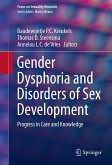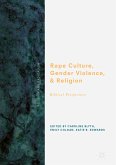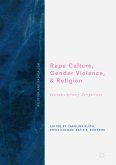Sex work, defined as the exchange of sexual or sexualized intimacy for money or something of value, encompasses a wide range of legal and illegal behaviors that present researchers with key ethical challenges explored in the volume. These ethical challenges include:
· Research methodology
· Distinguishing research from activism
· Navigating the politically and ideologically charged environments in which researchers must remain constantly attuned to the legal and public policy implications of their work
· Possibilities for participatory sex work research processes
· Strategies for incorporating participants in a variety of collaborative ways
Sex work presents a unique set of challenges that are not always well understood by those working outside of anthropology and disciplines closely related to it. This book serves an important function by honestly and openly reviewing strategies for overcoming these ethical challenges with the end goal of producing path-breaking research that actively incorporates the perspectives of research participants on their own terms. Ever attuned to the reality that research on sex work remains a deeply political act, Ethical Research with Sex Workers: Anthropological Approaches aspires to begin a dialogue about the meanings and practices ascribed to ethics in a fraught environment. Drawing upon a reviewof published scholarly and activist work on the subject, as well as on interviews with researchers, social service providers, and sex workers themselves, this volume is an unprecedented contribution to the literature that will engage researchers across a variety of disciplines, such as academics and researchers in anthropology, sociology, criminal justice, and public health, as well as activists and policymakers.
Dieser Download kann aus rechtlichen Gründen nur mit Rechnungsadresse in A, B, BG, CY, CZ, D, DK, EW, E, FIN, F, GR, HR, H, IRL, I, LT, L, LR, M, NL, PL, P, R, S, SLO, SK ausgeliefert werden.
"This text is a strong addition to the nascent body of literature that documents empirical research with sex workers. ... This text would also be a good fit for doctoral-level courses in community psychology and courses that use a framework of community-based research or participatory action research. Academic courses and scholarship focusing on intersections between psychology and sexuality, global perspectives on sex work and sex trafficking, and social movements could use this text as a reading assignment." (Theodore Burnes, PsycCRITIQUES, Vol. 58 (46), November, 2013)









